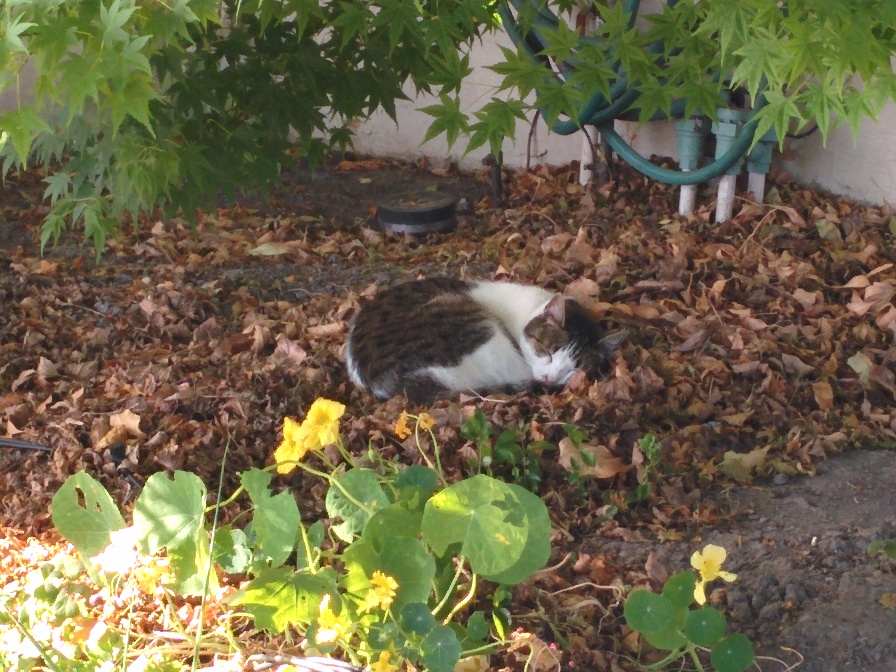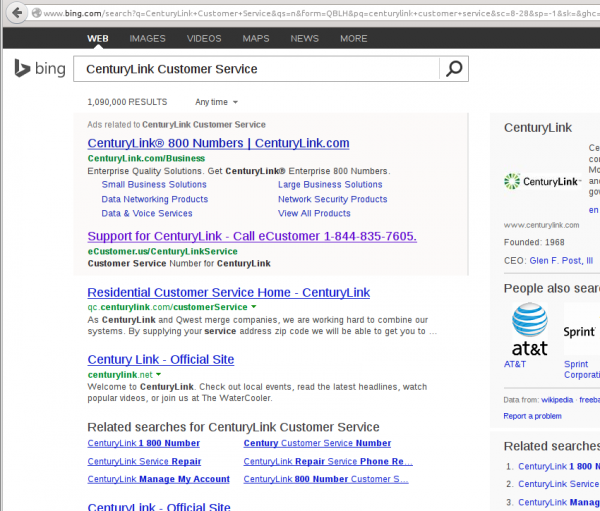Link:
https://dannyman.toldme.com/2015/04/08/aws-melt-glaciers-slowly/
I have been working with AWS to automate disaster recovery. Sync data up to S3 buckets (or, sometimes, EBS) and then write Ansible scripts to deploy a bunch of EC2 instances, restore the data, configure the systems.
Restoring data from Glacier is kind of a pain to automate. You have to iterate over the items in a bucket and issue restore requests for each item. But it gets more exciting than that on the billing end: Glacier restores can be crazy expensive!
A few things I learned this week:
1) Amazon Glacier restore fees are based on how quickly you want to restore your data. You can restore up to 5% of your total S3 storage on a given day for free. If you restore more than that they start to charge you and at the end of the month you’re confused by the $,$$$ bill.
2) Amazon Glacier will also charge you money if you delete data that hasn’t been in there for at least three months. If you Glacier something, you will pay to store it for at least three months. So, Glacier your archive data, but for something like a rolling backup, no Glacier.
3) When you get a $,$$$ bill one month because you were naive, file a support request and they can get you some money refunded.
Feedback Welcome
Link:
https://dannyman.toldme.com/2015/03/06/howto-program-agile/
There seems to be some backlash going on against the religion of “Agile Software Development” and it is best summarized by PragDave, reminding us that the “Agile Manifesto” first places “Individuals and interactions over processes and tools” — there are now a lot of Agile Processes and Tools which you can buy in to . . .
He then summarizes how to work agilely:
What to do:
Find out where you are
Take a small step towards your goal
Adjust your understanding based on what you learned
Repeat
How to do it:
When faced with two or more alternatives that deliver roughly the same value, take the path that makes future change easier.
Sounds like sensible advice. I think I’ll print that out and tape it on my display to help me keep focused.
Feedback Welcome
Link:
https://dannyman.toldme.com/2014/11/22/windows-8-wtf-microsoft/
I had the worst experience at work today: I had to prepare a computer for a new employee. That’s usually a pretty painless procedure, but this user was to be on Windows, and I had to … well, I had to call it quits after making only mediocre progress. This evening I checked online to make sure I’m not insane. A lot of people hate Windows 8, so I enjoyed clicking through a few reviews online, and then I just had to respond to Badger25’s review of Windows 8.1:
I think you are being way too easy on Windows 8.1 here, or at least insulting to the past. This isn’t a huge step backwards to the pre-Windows era: in DOS you could get things done! This is, if anything, a “Great Leap Forward” in which anything that smells of traditional ways of doing things has been purged in order to strengthen the purity of a failed ideology.
As far as boot speed, I was used to Windows XP booting in under five seconds. That was probably the first incarnation of Windows I enjoyed using. I just started setting up a Windows 8 workstation today for a business user and it is the most infuriatingly obtuse Operating System I have ever, in decades, had to deal with. (I am a Unix admin, so I’ve seen things….) This thing does NOT boot fast, or at least it does not reboot fast, because of all the updates which must be slowly applied.
Oddly enough, it seems that these days, the best computer UIs are offered by Linux distros, and they have weird gaps in usability, then Macs, then … I wouldn’t suggest Windows 8 on anyone except possibly those with physical or mental disabilities. Anyone who is used to DOING THINGS with computers is going to feel like they are using the computer with their head wrapped in a hefty bag. The thing could trigger panic attacks.
Monday is another day. I just hope the new employee doesn’t rage quit.
Feedback Welcome
Link:
https://dannyman.toldme.com/2014/11/11/el-camino-brt-could-be-faster-than-driving/
The Friends of Caltrain sent me e-mail touting progress on public transportation and density along the Peninsula, with provocative news that for the first time in its history, Santa Clara could build a transit service that is faster than driving.
I think the El Camino BRT could be a great project to transform El Camino Real from a ghetto of 1950s strip malls into the sort of place where people would go to enjoy shopping. Maybe. Anyway, the news that a dedicated lane from Santa Clara to Palo Alto could make the bus faster than cars excited me. I’ll try to be at the Sunnyvale meeting this evening, and I also submitted my own enthusiasm to our governments via Transform’s handy link:
I used to commute along El Camino from Mountain View to Palo Alto. I switched to the bus out of environmental concerns. El Camino has the best transit service in the county but it still took 2-3 times longer to take the bus than it would have taken to drive. Now it sounds like you could get BRT running on El Camino FASTER than cars? YES!! If the cars get slowed a bit that’s not such a big deal, especially since any driver going any distance knows that Central Expressway / Alma is a much nicer car trip. Even though I now live 1.5 miles off of El Camino in Sunnyvale, if there were excellent transit services I would be tempted to hop on the 55, walk, or bike to enjoy the transit corridor, especially for trips up to Mountain View or Palo Alto or Stanford Shopping Center. What a pleasure it would be to not have to hassle with parking, traffic, or the Caltrain schedule. If it were sufficiently fast, I would totally use that as a commute option up to Menlo Park.
Also, I’d probably be more inclined to visit Santa Clara.
Thanks,
-danny
2 Comments
Link:
https://dannyman.toldme.com/2014/08/07/maxwell-the-cat-2009-2014/
We had company over Wednesday evening. Friends of the family who have cat-sat for us. They brought dim sum. After dinner we sat around chatting. I got a call on my mobile from a 408 number. I took it.
“Are you the owner of Maxwell?”
“I am. Is he causing trouble?”
It was the opposite. I grabbed a cardboard box and hustled down to the corner, where a small crowd had gathered. The woman who had called me said he had been standing in the street, looking the other way, when the car hit him. He died instantly. She removed him from the street and found my number on the tag. We hugged. She was obviously a cat person, who was glad that he had a collar, a bell, and an identification tag.
I brought him home. He rested briefly where his feline companion Maggie took a last opportunity to groom him. The young woman who drove the car and her father came by to express their remorse and see if they could make amends, but there was nothing to be done. The young woman was in tears. She wants to be a veterinarian. The Father remembers dogs who had been lost to cars. We agreed that the Humane Society might receive a donation. We shook hands several times. What a way to meet the neighbors.

Maxwell napping in the front yard in June.
In the back yard, a shallow grave was dug. Maxwell was wrapped in a familiar fabric, and lain to rest. Words were said.
It will take some time to feel his absence and truly mourn his departure. He might have lived a much longer life as a house cat, but he loved the outdoors and was well known in the neighborhood. He lived as he chose and while his end was violent, it was swift and he did not suffer.
We’re going to miss you, Maxwell!
Feedback Welcome
Link:
https://dannyman.toldme.com/2014/05/15/vmware-retina-thunderbolt-constant-resolution/
Apple ships some nice hardware, but the Mac OS is not my cup of tea. So, I run Ubuntu (kubuntu) within VMWare Fusion as my workstation. It has nice features like sharing the clipboard between host and guest, and the ability to share files to the guest. Yay.
At work, I have a Thunderbolt display, which is a very comfortable screen to work at. When I leave my desk, the VMWare guest transfers to the Retina display on my Mac. That is where the trouble starts. You can have VMWare give it less resolution or full Retina resolution, but in either case, the screen size changes and I have to move my windows around.
The fix?
1) In the guest OS, set the display size to: 2560×1440 (or whatever works for your favorite external screen …)
2) Configure VMWare, per https://communities.vmware.com/message/2342718
2.1) Edit Library/Preferences/VMware Fusion/preferences
Set these options:
pref.autoFitGuestToWindow = "FALSE"
pref.autoFitFullScreen = "stretchGuestToHost"
2.2) Suspend your VM and restart Fusion.
Now I can use Exposé to drag my VM between the Thunderbolt display and the Mac’s Retina display, and back again, and things are really comfortable.
The only limitation is that since the aspect ratios differ slightly, the Retina display shows my VM environment in a slight letterbox, but it is not all that obvious on a MacBook Pro.
Feedback Welcome
Link:
https://dannyman.toldme.com/2014/05/14/new-phishing-scam-call-toll-free-to-refresh-your-ip-address/
I reported the following to the FBI, to LogMeIn123.com, to Century Link, and to Bing, and now I’ll share the story with you.
Yesterday, May 12, 2014, a relative was having trouble with Netflix. So she went to Bing and did a search for her ISP’s technical support:

Bing leads you to a convenient toll-free number to call for technical support!
She called the number: 844-835-7605 and spoke with a guy who had her go to LogMeIn123.com so he could fix her computer. He opened up something that revealed to her the presence of “foreign IP addresses” and then showed her the Wikipedia page for the Zeus Trojan Horse. He explained that she would need to refresh her IP address and that their Microsoft Certified Network Security whatevers could do it for $350 and they could take a personal check since her computer was infected and they couldn’t do a transaction online.
So, she conferenced me in. I said that she could just reinstall Windows, but he said no, as long as the IP was infected it would need to be refreshed. I said, well, what if we just destroyed the computer. No, no, the IP is infected. “An IP address is a number: how can it get infected?” I then explained that I was a network administrator . . . he said he would check with his manager. That was the last we heard from him.
I advised her that this sounded very very very much like a phishing scam and that she should call the telephone number on the bill from her ISP. She did that and they were very interested in her experience.
I was initially very worried that she had a virus that managed to fool her into calling a different number for her ISP. I followed up the next day, using similar software to VNC into her computer. I checked the browser history and found that the telephone number was right there in Bing for all the world to see. She doesn’t have a computer virus after all! (I’ll take a cloer look tonight . . .)
I submitted a report to the FBI, LogMeIn123.com, Bing, and Century Link. And now I share the story here. Its a phishing scam that doesn’t even require an actual computer virus to work!
Feedback Welcome
Link:
https://dannyman.toldme.com/2014/05/09/elevated-trains/

Forney engine pulls Lake Street Elevated Railroad train over Lake Street in Chicago, 1893.
Thanks, Chuckman!!
Feedback Welcome
Link:
https://dannyman.toldme.com/2014/04/11/faq-should-i-change-all-my-passwords/
As a SysAdmin, people ask me how much they need to worry over the heartbleed vulnerability. Here’s my own take:

Google were known to be vulnerable. They co-discovered the vulnerability and deployed fixes quickly. I like to believe they are analyzing the scope and likelihood of user password compromise and will issue good advice on whether Gmail passwords should be updated.
For everything else, my small opinion is “don’t panic.” Not every web site would have been affected. The Ops folks at each site need to patch their systems and assess the extent to which credentials may have been compromised, then take appropriate steps to mitigate compromised data, which might include asking users to set new passwords. But if they’re still waiting on some patches, then submitting a new password could actually put both passwords at risk.
For other important passwords, like your bank, check up on what they’re recommending that you do. If a site is important to you and they offer two-factor auth, go for it: that typically means that if you log on from a new computer they’ll text a one-time pin code to your mobile phone to double-check that it’s you.
Feedback Welcome
Link:
https://dannyman.toldme.com/2014/03/04/gandhi-king-mandela-mamchur/
How do you triumph against an oppressor who has an overwhelming advantage in terms of firepower? If you are Mahatma Gandi, Martin Luther King Jr, Nelson Mandela, or Ukrainian Colonel Yuri Mamchur, you practice non-violent direct action. I hope that Ukraine may yet share in the triumph of this strategy.

Colonel Yuri Mamchur, Hero of Belbek, UA
I will tell the story from Simon Shuster’s Twitter stream:
UPDATE: Very Good Summary on Buzzfeed
Commander of Ukraine’s Belbek base just got a call from Russian counterpart. Another ultimatum: surrender by 16:00. This is the 3rd one
Incredible. Half the Ukraine troops from Belbek base now marching to airstrip occupied by Russians. Unarmed. To take it back.
The column of troops, carrying the Ukraine and Soviet (!) flags, about to march on the Russian occupied airstrip. pic.twitter.com/prR9rfP7Fp
Ukraine column has reached Russian checkpoint. Russians begin firing in the air. Ukrainians keep marching
Russians call commander to negotiate. Troops have RPGs and machine guns trained on the column of unarmed Ukrainian soldiers. Belbek, Crimea
Russians back down, allow 10 Ukraine soldiers to take up positions at occupied base, but still awaiting orders from Moscow
Face off between Ukraine base commander Col. Yuli Manchur and Russian officer at occupied Belbek airbase pic.twitter.com/6N10wuezef
The Ukraine commanders just received word that Putin ordered the Russian troops to withdraw. Is that true?
Officer who shot in air as Ukraine column marched up to him said he was on the Maidan fighting ‘fascists’ with a stick. Presumably Berkut
The red flag the Ukrainians marched with is the banner of the fighter pilots who fought Nazis in 1941 and guarded the Yalta Conference
Ukraine Colonel still negotiating, Russian snipers & RPGs still aiming at column of soldiers. But deescalation is clear, at least in Belbek
Personnel carrier just arrived, disgorging armed Russian troops at checkpoint. Ukraine commander just finished negotiating.
Ukraine commander demands to guard the base jointly with Russians, who pledge to give their commanders’ response by 12:00, in 2 hours
Russian military truck just brought a handful of (probably Russian) news crews to the Belbek standoff. They’re now filming from Russian side
Ukraine’s 204th tactical aviation brigade when they just arrived to face down the Russians in Belbek: pic.twitter.com/Zz91TuJHXf
Marching along with the Ukraine brigade were the wives of four of the officers, all standing surrounded by Russian snipers at Belbek
Phone battery dying. Read @Time a bit later for the hair-raising conclusion of the ballsiest move of the Crimean conflict so far. #Belbek
I first read of the story via ABC News. I think this is an excellent strategy to employ against the Russian occupation. Putin claims the Russians are there to defend against violent acts. It would appear that the Ukrainian Military are Not the Problem here. I hope this tactic is employed further by Ukraine’s soldiers and its people, and I wish to see them succeed. Mamchur and his soldiers are heros of humanity.
Feedback Welcome
Link:
https://dannyman.toldme.com/2014/01/10/trader-joes-raisin-bran-calories/
I started trying to use Fitbit to track calorie consumption again the other day. This gets frustrating pretty fast because unless you only eat processed food from packages of specific size you mostly have to accept that calorie counting is a wildly inaccurate guessing game.
I’m happy to embrace the mystery and accept approximate measurements for the most part, but I figured there was one thing I could tackle: breakfast! The most important meal of the day … and I tend to eat the same thing: a bowl of Trader Joe’s Raisin Bran with skim milk. (Trader Joe’s is the only raisin bran I can find any more where the raisins aren’t coated in sugar.)
In theory, this is trivial to figure out. The information is posted right on the side of the box:

So, how many calories am I eating, here?
Caveat: I eat cereal by the bowl, not by the cup! I also eat with some quantity of skim milk.
I whipped out my trusty digtal kitchen scale:
1) Switch scale back to metric
2) Place bowl on scale
3) TARE
4) Pour a bowl of cereal, note weight (129g)
5) TARE
6) Pour milk, note weight (331g)
7) Remove bowl from scale and enjoy breakfast before everything goes soggy
Cereal calories are easy to figure: 129/55 * 170 = 399 calories
Milk servings are measured in ml, though. The moment I started trying to look up the volume of a gram of milk, Google just gave me the answer: 113 calories
So, my regular breakfast clocks in at 512 calories. Mainly, I just wanted to sing the praises of my trusty digital kitchen scale.
UPDATE: Friends advise use of http://www.myfitnesspal.com/, which allegedly has a better database. It looks like I can “save” a favorite meal consisting of:
- 2.35 servings of Trader Joe’s Raising Bran
- 1.26 servings of Sprouts – Fat Free Milk

myfitnesspal: saving a measured breakfast.
2 Comments
Link:
https://dannyman.toldme.com/2013/11/25/slaughterhouses-and-battlefields/
Two quotes passed along on September 11, from my meat-eating Grandmother:

A USDA inspector reviews the carcasses of slaughtered pigs for our safety. Credit: Wikmedia Commons
“As long as there are slaughterhouses there will be battlefields.” –Leo Tolstoy
“We are the living graves of murdered beasts
slaughtered to satisfy our appetites.
We never pause to wonder at our feasts,
if animals, like men, can possibly have rights.
We pray on Sundays that we may have light,
to guide our footsteps on the path we tread.
We’re sick of war, we do not want to fight –
The thought of it now fills our hearts with dread,
and yet – we gorge ourselves upon the dead.
Like carrion crows we live and feed on meat,
regardless of the suffering and pain
we cause by doing so, if thus we treat
defenseless animals for sport or gain
how can we hope in this world to attain
the PEACE we say we are so anxious for.
We pray for it o’er hecatombs of slain,
to God, while outraging the moral law,
thus cruelty begets its offspring – WAR.”
–George Bernard Shaw
Feedback Welcome
Link:
https://dannyman.toldme.com/2013/11/20/phishing-chinese-domain-registration/
Here is a new phishing attack that made it through to Gmail about the domain name dispute around tjldme . . . ?!!
Dear Manager,
(If you are not the person who is in charge of this, please forward this to your CEO,Thanks)
We are a organization specializing in network consulting and registration in China. Here we have something to confirm with you. We just received an application sent from “Global Importing Co., Ltd” on 20/11/2013, requesting for applying the “tjldme” as the Internet Brand and the following domain names for their business running in China region:
tjldme.asia
tjldme.cn
tjldme.com.cn
tjldme.com.tw
tjldme.hk
tjldme.net.cn
tjldme.org.cn
tjldme.tw
Though our preliminary review and verification, we found that this name is currently being used by your company and is applied as your domain name. In order to avoid any potential risks in terms of domain name dispute and impact on your market businesses in China and Asia in future, we need to confirm with you whether “Global Importing Co., Ltd” is your own subsidiary or partner, whether the registration of the listed domains would bring any impact on you. If no impact on you, we will go on with the registration at once. If you have no relationship with “Global Importing Co., Ltd” and the registration would bring some impact on you, Please contact us immediately within 10 working days, otherwise, you will be deemed as waived by default. We will unconditionally finish the registration for “Global Importing Co., Ltd”
Please contact us in time in order that we can handle this issue better.
Best Regards,
Wesley Hu
Auditing Department.
Registration Department Manager
4/F,No.9 XingHui West Street,
JinNiu ChenDu, China
Office:Â +86 2887662861
Fax:Â +86 2887783286
Web:Â http://www.cnnetpro.com
Please consider the environment before you print this e-mail.
I assume they’ll need a processing fee. I wonder if they munged toldme.com in an effort to avoid Phish filtering . . . ? The URL at the bottom is blocked by our firewall.
1 Comment
Link:
https://dannyman.toldme.com/2013/11/16/test-of-android-voice-dictation/
In honor of Benjy Feen, a test of Android’s speech-to-text capability:
| Original Text |
Transcribed Text |
|
We were somewhere around Barstow on the edge of the desert when the drugs began to take hold. I remember saying something like “I feel a bit lightheaded; maybe you should drive….” And suddenly there was a terrible roar all around us and the sky was full of what looked like huge bats, all swooping and screeching and diving around the car, which was going about a hundred miles an hour with the top down to Las Vegas. And a voice was screaming “Holy Jesus! What are these goddamn animals?”
Then it was quiet again. My attorney had taken his shirt off and was pouring beer on his chest, to facilitate the tanning process. “What the hell are you yelling about?” he muttered, staring up at the sun with his eyes closed and covered with wraparound Spanish sunglasses. “Never mind,” I said. “It’s your turn to drive.” I hit the brakes and aimed the Great Red Shark toward the shoulder of the highway. No point mentioning those bats, I thought. The poor bastard will see them soon enough.
|
We were somewhere around Barstow on the edge of the desert with a drug against a cold. I remember saying something like “I feel a bit lightheaded maybe you should drive.” And suddenly there was a terrible rawr all around us in the sky was full of it look like you’re fat, also reach me on the car, which was going about a hundred miles an hour with the top down to Las Vegas. And waste of screaming “All ages! What are these god damn animals?”
It was quiet again. I turn into taking your shirt off was pouring beer ice chest, to the Celtic the tanning process. “What the hell are you yelling about?” he muttered, staring up at the Sun with his eyes closed and covered with wraparound Spanish sunglasses. “Nevermind,” I said. “It’s your turn to drive.” I hit the brakes and emigrate red truck with the shoulder of the highway. No point missing those bats, I thought. The poor bastard will see them soon enough.
|
I added the quotation marks manually, as well as the paragraph break. My phone, unlike others, does not seem to understand the “new paragraph” command. The original text, was stolen from http://www.galleries.com/jeff/gonzo.htm, which was stolen from Hunter S. Thompson, who is dead.
Feedback Welcome
Link:
https://dannyman.toldme.com/2013/11/15/a-computer-telephone-without-a-keyboard/
At long last, I retired my old T-Mobile G2. It was the last in a long line of phones I have owned for the past decade with a physical keyboard. (I think I owned every Sidekick up to the 3 before going Android with the G1 and the G2.) I like the ability to thumb type into my phone, but the G2’s old keyboard had long ago gone creaky, and it had lacked a dedicated number row besides.

Obligatory picture recently taken with my new computer telephone. Featuring a cat.
They don’t make nice smart phones with keyboards any more. Market research seems to indicate that the only remaining markets for keyboard phones are horny teenagers who need a cheap, hip Android-based Sidekick, and those legions of high powered business people who will never abandon their ancient Blackberries.
Anyway, the new Nexus 5 is here. The on-screen keyboard is okay slow and inaccurate. Like moving from a really fantastic sports car to a hovercraft piloted by a drunken monkey. I mean,the monkey-piloted hovercraft is undeniably cool technology, and I can eventually get where I need to go, but . . . its not the same, you see?
So, lets explore Voice dictation! It works . . . well, about as well as the monkey hovercraft, but with the added benefit that you don’t have to keep jiggling your thumb across the screen. But how do you do new lines and paragraphs? Where’s the command reference?
I asked Google. Google: android voice dictation commands?
Yup. If there is a reference somewhere, Google doesn’t know about it. How sad.
There is one humorous and not overly annoying video demonstrating how to do voice dictation. Various forum posts have users saying they can’t find a reference, but simple punctuation seems to work, and sometimes you can say “new paragraph” and sometimes you can not.
I have to wonder, at times.
The other thing that excited me about the Nexus 5 was that on the home screen you can drag apps right up to “Uninstall” . . . unless they’re Google apps! “Way to not be evil,” I cried. Until a Google colleague pointed out that it was just a bit of UI funkiness on Google’s part, owing to the applications coming bolted into the UI, there is at least a method to disable them.
Anyway, this is useful knowledge that helped me to vanquish the Picasa sync thing that has been hiding images from the gallery for the past few years. I have another project where I’m testing out BitTorrent Sync to pull images off our phones and then sync a copy of the family photo archive back down to the phones. If that works out, I’ll write it up. I may pursue that further to see if I can’t replace Dropbox, which, unfortunately, does not (yet) offer any sort of a family plan. Also, if I can host my own data I needn’t share as much of it with the NSA.
Feedback Welcome
« Newer Stuff . . . Older Stuff »
Site Archive









